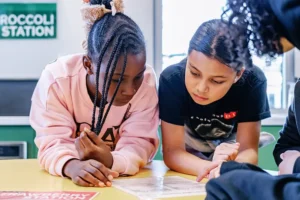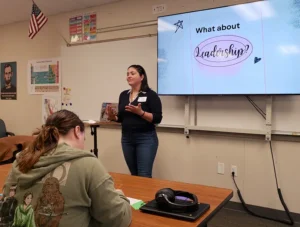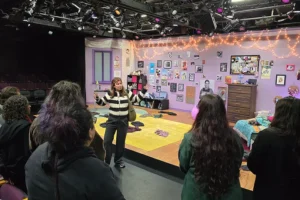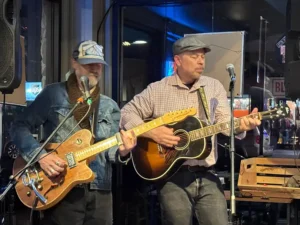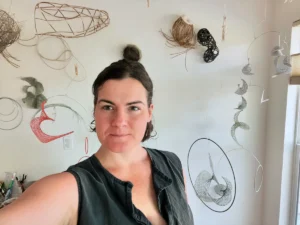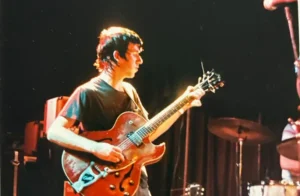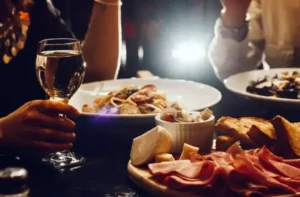Joe Hunter has worn many hats in his life — firefighter, fire captain, father and, most recently, “Survivor” contestant.
After finishing as the runner-up on “Survivor” season 48, Hunter has continued to reflect on what it means to live authentically, balance life’s challenges and share his story with others.
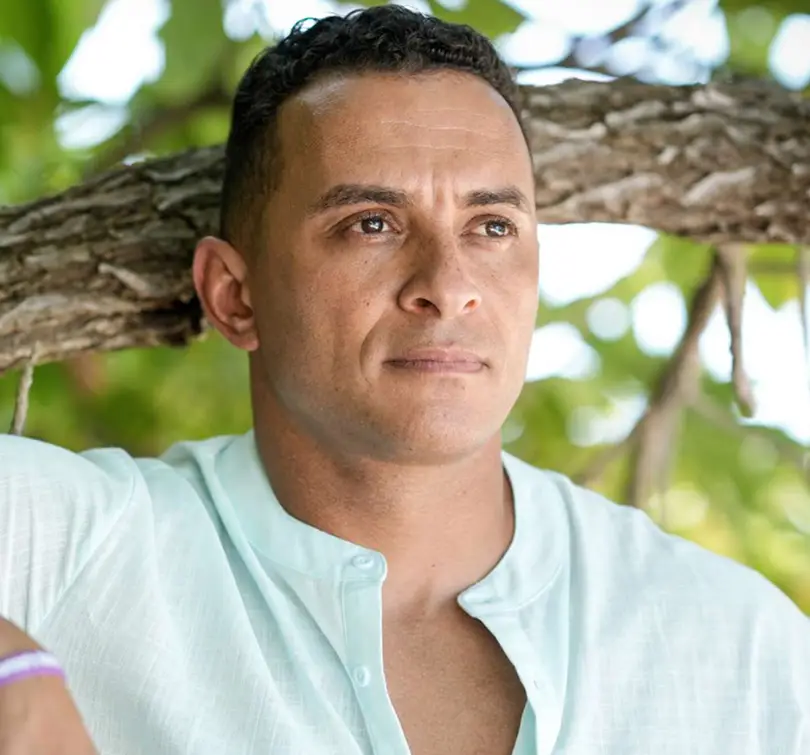
Ahead of his Sept. 21 appearance at the “In a Nutshell” storytelling series at The Sofia in Sacramento, Hunter sat down with Solving Sacramento to talk about vulnerability, family, balance and why he believes stepping outside of his comfort zone is where real growth happens.
How did you balance authenticity with strategy while playing a game that’s designed around deception?
There’s even a deeper level, right? There’s trying to be authentic, but then there’s also trying to be vulnerable. I led with being vulnerable, and if you’re truly being vulnerable, it’s almost impossible to be false. My motivation for going on the show was not to be famous or to start a second career. I went into it to honor my sister and make sure that my family and kids felt proud. It’s extremely challenging to be authentic when you’re surrounded by people playing a game designed to lie.
You’ve said you wanted to set an example for your kids. What do you hope they take away from your time on “Survivor”?
The show gives you a little glance into society. You get people who lie, cheat, steal, talk behind your back. I hope my kids are proud of how I handled those moments, because they’re moments they’ll face too. I want them to see that it’s OK to be vulnerable, you can be strong and still have compassion, and that loyalty matters.
You wear many hats now — firefighter, fire captain, father and reality TV star. Each comes with unique risks. How do you balance all of that?
It’s funny to hear “reality star,” because I don’t really see it that way. But balance is key. I went through a divorce, I went through the loss of my sister, and I’ve been through depression and struggles. That made me realize what’s truly important and how to set priorities. I started putting myself first for a bit — making sure I was mentally and emotionally strong — and that made me a better husband and father. Once you set your priorities, you can trim the fat. That’s how you achieve balance.
Without giving too much away, what can we expect from your “In a Nutshell” storytelling performance?
I’ve been working really hard on this because I respect the opportunity. You can expect the genuine reality of my “Survivor” experience — what happened before, during and after. How it affected me mentally, physically and emotionally. It was like stepping into “Alice in Wonderland,” and I want the audience to step into that world with me, intertwined with my life as a dad, husband and fire captain.
Why was participating in “In a Nutshell” important to you?
First, I’m a huge supporter of local business and culture. Sacramento doesn’t always get the notoriety it deserves, and I love that this series brings the community together. For me personally, I wanted to do something that forced me out of my comfort zone. At a certain age, opportunities to truly grow become rare. This is a chance to be vulnerable, unscripted and authentic in front of people. That excites me and makes me nervous — which is exactly why I wanted to do it.
Earlier this year, your sister’s passing was honored with new legislation in California, Joanna’s Law (Senate Bill 989). What does that mean to you and your family?
It makes me super emotional because it took us eight years to get this off the ground. We had no political or legal experience, and the daily grind of it was overwhelming. There were so many no’s. What it means is hope — hope that an average family can win, that perseverance pays off. Joanna’s Law is more than legislation. It’s a symbol of fortitude for families battling a bigger system.
Looking back at “Survivor” season 48, what lessons are you carrying into season 50?
First, trust your gut. If someone feels off, trust that instinct. Second, stop worrying so much about what other people think. On the island, I cared too much about making peace with everyone. This time, I treated it more like a game and focused on myself. Third, prioritize your family. In season 50, I played not for fame or approval, but for my family’s survival.
Many viewers saw you as an example of positive masculinity — a father and leader who balanced strength with vulnerability. Did you think about that going in, and how do you feel about it now?
I didn’t think about it at all while I was playing. It was happening too fast in real time. But I’m honored to hear that. To me, real masculinity is vulnerability. It’s harder to cry in front of someone than to hide it. I’ve redefined masculinity for myself, especially as a father. “Survivor” gave me the chance to show that. My son’s letter telling me to be brave reminded me that bravery isn’t about toughness; it’s about courage and authenticity.
You once said, “It’s refreshing to my soul to be a part of something that’s bigger than me.” Can you expand on that?
In the fire service, some days you know you’ve made an impact, some days you don’t. With “Survivor,” I realized quickly that what I was part of touched a lot of people. The moment with Eva, for example, resonated with viewers on themes of autism, compassion and humanity. That’s bigger than me. Being part of something like that fills my cup. It gives me peace knowing I was able to do that, and I’ll always be grateful for it.
Editor’s note: Solving Sacramento is a co-presenter of the “In A Nutshell” series.
This story is part of the Solving Sacramento journalism collaborative. This story was funded by the City of Sacramento’s Arts and Creative Economy Journalism Grant to Solving Sacramento. Following our journalism code of ethics, the city had no editorial influence over this story. Our partners include California Groundbreakers, Capital Public Radio, Hmong Daily News, Outword, Russian America Media, Sacramento Business Journal, Sacramento News & Review and Sacramento Observer. Sign up for our “Sac Art Pulse” newsletter here.
By Chris Woodard

